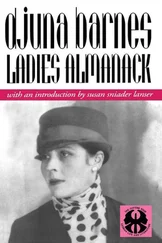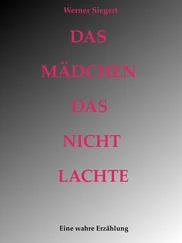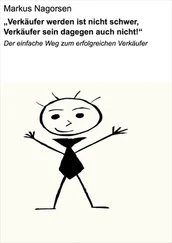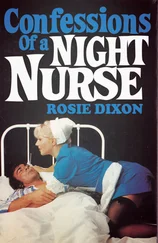When Guido had first spoken of wishing to enter the church, Felix had been startled out of himself. He knew that Guido was not like other children, that he would always be too estranged to be argued with; in accepting his son the Baron saw that he must accept a demolition of his own life. The child would obviously never be able to cope with it. The Baron bought his boy a virgin in metal, hanging from a red ribbon, and placed it about his neck, and in doing so, the slight neck, bent to take the ribbon, recalled to him Robin’s, as she stood back to him in the antique shop on the Seine.
So Felix began to look into the matter of the church. He searched the face of every priest he saw in the streets; he read litanies and examined chasubles and read the Credo; he inquired into the state of monasteries. He wrote, after much thought, to the Pope, a long disquisition on the state of the cloth. He touched on Franciscan monks and French priests, pointing out that any faith that could, in its profoundest unity, compose two such dissimilar types—one the Roman, shaved and expectant of what seemed, when one looked into his vacantly absorbed face, nothing more glorious than a muscular resurrection; and the other, the French priest, who seemed to be composite of husband and wife in conjunction with original sin, carrying with them good and evil in constantly quantitative ascent and descent, the unhappy spectacle of a single ego come to a several public dissolution,—must be profoundly elastic.
He inquired if this might not be the outcome of the very different confessional states of the two countries. Was it not, he asked, to be taken for granted that the Italian ear must be less confounded because, possibly, it was harking the echo of its past, and the French that of the future? Was it conceivable that the ‘confessions’ of the two nations could, in the one case, produce that living and expectant coma and, in the other, that worldly, incredible, indecent gluttony? He said that he himself had come to the conclusion that the French, the more secular, were a very porous people. Assuming this, it was then only natural that from listening to a thousand and one lay sins, the priest, upon reaching no riper age than two score, should find it difficult to absolve, the penitent having laid himself open to a peculiar kind of forgiveness; not so much absolution as exigency, for the priest was himself a vessel already filled to overflowing, and gave pardon because he could no longer hold—he signed with the cross, hastily and in stress, being, like a full bladder, embarrassed and in need of an immediate privacy. The Franciscan, on the other hand, had still a moment to wait. There was no tangent in his iris, as one who, in blessing is looking for relief.
Felix received no answer. He had expected none. He wrote to clear some doubt in his mind. He knew that in all probability the child would never be ‘chosen’. If he were the Baron hoped that it would be in Austria, among his own people, and to that end he finally decided to make his home in Vienna.
Before leaving, however, he sought out the doctor. He was not in his lodging. The Baron aimlessly set off toward the square. He saw the small black clad figure moving toward him. The doctor had been to a funeral and was on his way to the Café de la Mairie du VIe to lift his spirits. The Baron was shocked to observe, in the few seconds before the doctor saw him, that he seemed old, older than his fifty odd years would account for. He moved slowly as if he were dragging water; his knees, which one seldom noticed, because he was usually seated, sagged. His dark shaved chin was lowered as if in a melancholy that had no beginning or end. The Baron hailed him, and instantly the doctor threw off his unobserved self, as one hides, hastily, a secret life. He smiled, drew himself up, raised his hand in greeting, though, as is usual with people when taken unaware, with a touch of defence.
‘Where have you been?’ he said as he came to a standstill in the middle of the block. ‘I haven’t seen you for months, and’, he added, ‘it’s a pity.’
The Baron smiled in return. ‘I’ve been in mental trouble,’ he said, walking beside the doctor. ‘Are you’, he added, ‘engaged for dinner?’
‘No,’ said the doctor, ‘I’ve just buried an excellent fellow. Don’t think you ever met him, a Kabyle, better sort of Arab. They have Roman blood, and can turn pale at a great pinch, which is more than can be said for most, you know,’ he added, walking a little sideways, as one does when not knowing where a companion is going. ‘Do a bit for a Kabyle, back or front, and they back up on you with a camel or a bag of dates.’ He sighed and passed his hand over his chin. ‘He was the only one I ever knew who offered me five francs before I could reach for my own. I had it framed in orange blossoms and hung it over the whatnot.’
The Baron was abstracted, but he smiled out of politeness. He suggested dining in the Bois. The doctor was only too willing, and at the sudden good news, he made that series of half-gestures of a person taken pleasantly unaware; he half held up his hands—no gloves—he almost touched his breast pocket—a handkerchief; he glanced at his boots, and was grateful for the funeral; he was shined, fairly neat; he touched his tie, stretching his throat muscles.
As they drove through the Bois the doctor went over in his mind what he would order—duck with oranges, no—having eaten on a poor man’s purse for so many years, habit had brought him to simple things with garlic. He shivered. He must think of something different. All he could think of was coffee and Grand Marnier , the big tumbler warmed with the hands, like his people warming at the peat fire. ‘Yes?’ he said, and realized that the Baron had been speaking. The doctor lifted his chin to the night air and listened now with an intensity with which he hoped to reconstruct the sentence.
‘Strange, I had never seen the Baronin in this light before,’ the Baron was saying, and he crossed his knees. ‘If I should try to put it into words, I mean how I did see her, it would be incomprehensible, for the simple reason that I find that I never did have a really clear idea of her at any time. I had an image of her, but that is not the same thing. An image is a stop the mind makes between uncertainties. I had gathered, of course, a good deal from you, and later, after she went away, from others, but this only strengthened my confusion. The more we learn of a person, the less we know. It does not, for instance, help me to know anything of Chartres above the fact that it possesses a cathedral, unless I have lived in Chartres and so keep the relative heights of the cathedral and the lives of its population in proportion. Otherwise it would only confuse me to learn that Jean of that city stood his wife upright in a well; the moment I visualize this, the deed will measure as high as the building; just as children who have a little knowledge of life will draw a man and a barn on the same scale.’
‘Your devotion to the past’, observed the doctor, looking at the cab metre with apprehension, ‘is perhaps like a child’s drawing.’
The Baron nodded. He was troubled. ‘My family is preserved because I have it only from the memory of one single woman, my aunt; therefore it is single, clear and unalterable. In this I am fortunate, through this I have a sense of immortality. Our basic idea of eternity is a condition that cannot vary. It is the motivation of marriage. No man really wants his freedom. He gets a habit as quickly as possible—it is a form of immortality.’
‘And what’s more,’ said the doctor, ‘we heap reproaches on the person who breaks it, saying that in so doing he has broken the image—of our safety.’
Читать дальше












